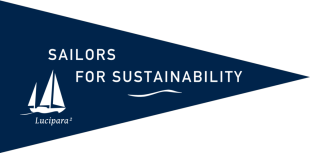Community
We all live in communities that have changed significantly in recent history. Traditional communities were primarily organized around local resilience. Many people knew each other personally and the economy was mainly locally organized. The rest of the world was just too far away. That all changed with industrialization, the increase in global trade, population growth and – more recently – globalization. Capital and goods could move more freely around the world. Local resilience was no longer required, efficiency and scale advantages shaped our thinking and behavior. This resulted in more and more complex societies, supported by more distant democratic institutions. It also resulted in value being extracted from local communities, since profits were transferred elsewhere and inequality of wealth distribution increased. Ever growing companies have been searching the globe for cheaper manufacturing opportunities. Cities have grown and become more and more dependent on food, energy and materials derived from elsewhere.
In today’s world of a growing global population with ever higher consumption aspirations, we are increasingly overshooting the physical limits of our planet. The very fact that the richest 20% of the world’s population consumes more than 80% of all energy and raw materials proves that it is not so much population size but behavior that’s our biggest problem. The richest 1% of humanity even emits more than double the amount of CO2 compared to the poorest 50%!
Our national and transnational democratic institutions are failing to make the necessary reforms, influenced by powerful business groups like the financial and the fossil fuel industries. In response, people increasingly feel dissatisfied and are forming digital communities to drive change, sometimes on a global scale. Also, local community initiatives are reinvented to drive change. When peak oil, inflation, more unemployment, higher transportation costs and currency fluctuations are expected to reverse the globalization trend, localization is the obvious alternative. When it’s no longer possible or necessary for everyone to own everything, sharing becomes the logical alternative. It is thus time for a modern revival of resilient local communities.
The sustainable solutions we look for strengthen digital or local communities. They make use of the internet to connect people, share goods or ideas. Or they focus on more traditional ways of local cooperation like caring, working, generating energy, growing food or strengthening local democracy.
See below our Community solutions.

Enviroschools (NZL)
What does it take to integrate sustainability in education? New Zealand’s Enviroschools are leading the way.

Buy Local (PYF)
In Tahiti we discover markets with fresh fruit and vegetables from the island. We learn that buying local has various benefits for the community.

Self-Sufficient Living (PYF)
On the island of Taravai, we meet a self-sufficient family. Their lifestyle is not only more resilient, but also provides sustainability benefits.

Community-Based Tourism (PER)
Community-based tourism, with slow travel and homestays at its core, makes for an authentic and more sustainable travel experience.

Sustainable Schools (URY)
The buildings and teachings at these schools are textbook examples of sustainability.

Ecovillage Findhorn (GBR)
Spirituality plays a big part at Findhorn Ecovillage, which is based on love for nature and each other.


